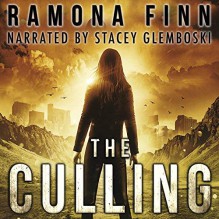
Kazuhiko, a former government agent, is roped into doing one last job for General Ko, one of the heads of the government. She tells him he must deliver a package, which he soon learns is actually a young girl named Sue. In the first two volumes of Clover, Kazuhiko does his best to take Sue to her destination despite opposition from multiple sources. He gradually learns who Sue is, why people don't want her going free, and how she's connected to him. The third volume of Clover is a flashback to the time when Sue and a beautiful singer named Ora first met, the beginnings of Sue's desire to leave her cage. The fourth volume of Clover is yet another flashback, even further back in time, to the days when Ran escaped his own cage and met Gingetsu, a friend of Kazuhiko's.
Clover's biggest strength was that it was very beautiful. It came across like an art experiment on CLAMP's part - lots of negative space, interesting things done with panel placement and usage, etc. And since this is one of those tragic CLAMP series, there are lots of beautiful people looking sad. A few of them get to be happy for a little bit, but it fades into bittersweetness at best.
Unfortunately, this series is style over clarity. Scenes felt disjointed and didn't always transition in ways I could easily follow. The first couple volumes technically had quite a bit of action in them, but it didn't always feel like action because of the way CLAMP drew things. It was weird, and I struggled to follow everything that was going on. The end of the amusement park portion was especially confusing, and instead of giving me more of that story, volumes 3 and 4 turned out to be flashbacks. The story never returned to its present.
One thing I didn't know until after I started reading was that this series was originally intended to be longer. I don't know why it was halted, but it was, which explains why, after two volumes of flashbacks, the story just...stopped. It was immensely frustrating.
The story had song lyrics repeated frequently throughout, at least two or three different songs. I did my best to pay attention to any lyrics the first time they showed up, but I generally found them difficult to read (in a fancy font, often white text on black backgrounds). Also, song lyrics are just disjointed text to me - I can't even vaguely imagine them put to music unless I've actually heard that music before. After a while, I just skimmed any lyrics that came up, which was probably not what CLAMP was aiming for.
I was left with so many questions. On the one hand, the government acted like Clover power was a simple matter of math (a two-leaf plus a three-leaf would equal five and therefore be too powerful to oppose). On the other hand, it was clear that some Clovers' powers wouldn't be a problem not matter how many of them got together, so it really wasn't just a matter of adding up the total number of leaves. And did people like General Ko technically count as Clovers? The world-building didn't make much sense to me.
All in all, this is one of those series that I'd probably only recommend to CLAMP completists or comics creators. As much as I liked the visuals, the story itself was more difficult to follow than it needed to be and didn't have a proper ending.
Additional Comments:
Supposedly each of the different levels of Clovers got a different tattoo, but the one character who was a one-leaf Clover had a four-leaf tattoo. Was that a mistake on CLAMP's part? It confused me.
Extras:
A few pages of full-color images at the beginning of each volume in the omnibus, as well as a full-color bonus gallery.
Rating Note:
I struggled with rating this. The story is probably more 1.5 stars - it's unfinished, will likely never be finished, and is structured oddly for something that stops at the point it does. The artwork, however, is lovely, more in the 4-star range (the clarity issues make me reluctant to rate it higher).
(Original review posted on A Library Girl's Familiar Diversions.)

 Log in with Facebook
Log in with Facebook 









